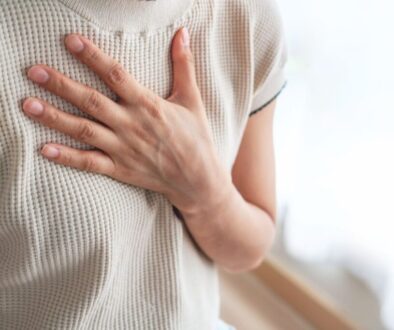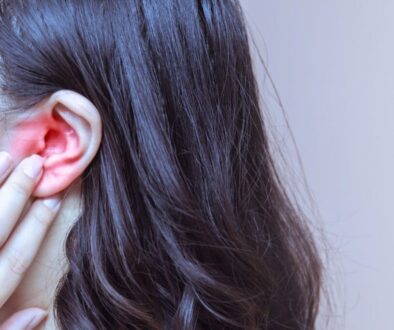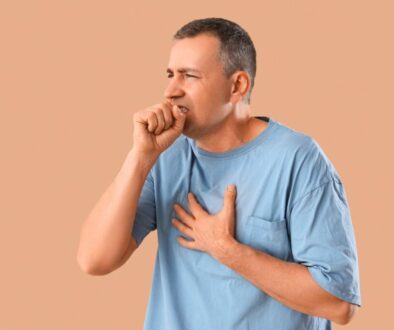Do Antibiotics Cause Constipation? What You Need to Know
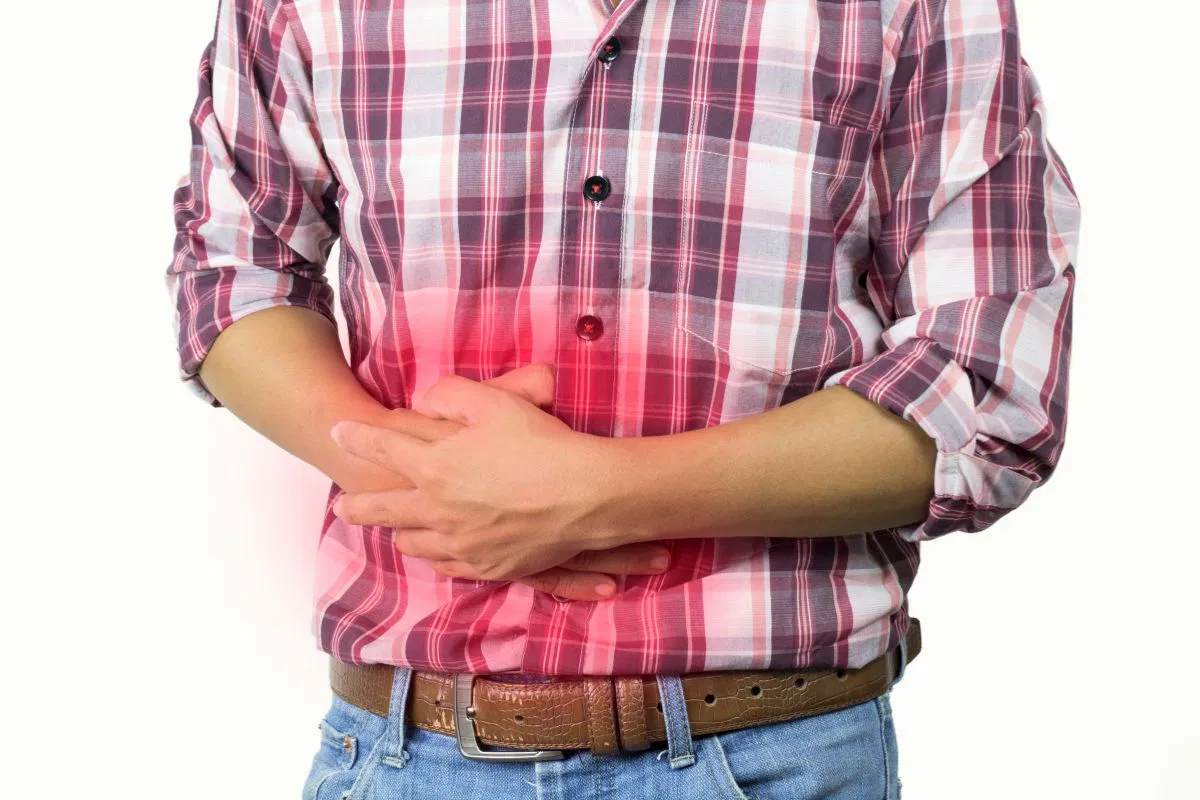
Published October 14, 2025
Ever finish a course of antibiotics, only to face an unexpected problem? We all know antibiotics can cause diarrhea, but what if they leave you feeling sluggish and backed up instead? It’s a frustrating surprise, but constipation after antibiotics is a very real side effect for many. These medications are crucial for fighting bacterial infections. However, they can disrupt your gut’s delicate balance. This often leaves you feeling far from your best.
In this article, we’ll explore the link between antibiotics and constipation—why it occurs, how long it lasts, and natural ways to relieve it. Understanding antibiotic impact is vital for managing side effects and gut health during and after treatment.
Can Antibiotics Really Cause Constipation?
Though diarrhea is a more common side effect, constipation from antibiotics can also be a concern for some individuals. The effect of an antibiotic on your digestive system is complex and can vary significantly from person to person.
How Antibiotics Affect Your Gut Microbiome
Your gut contains trillions of microorganisms, called the gut microbiome. This complex system is vital for digestion, nutrient absorption, and healthy bowel movements. Broad-spectrum antibiotics are designed to eliminate a wide range of bacteria. They often can’t tell the difference between harmful pathogens and beneficial bacteria. This is a problem because helpful bacteria are essential for a well-functioning gut.
Antibiotics can get rid of beneficial bacteria in your gut. This disrupts the delicate balance of your microbiome. As a result, gut motility slows down. Waste moves more slowly through your digestive tract, leading to infrequent, hard stools.
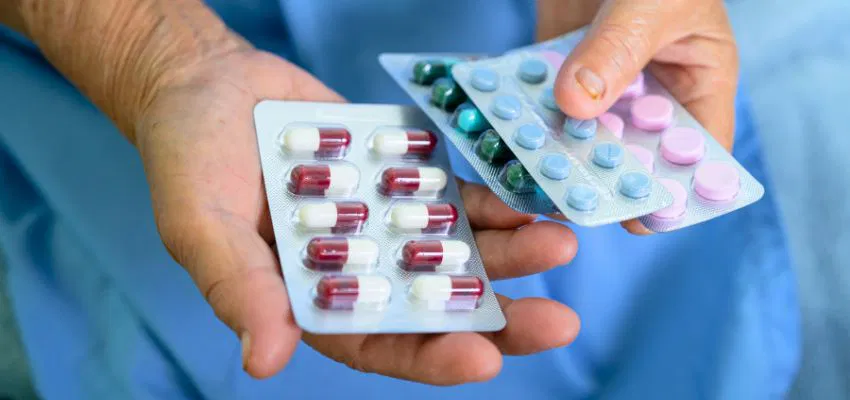
Why Do Some People Experience Constipation After Taking Antibiotics?
Not everyone experiences constipation after taking antibiotics. Your body’s reaction depends on factors like gut health, medication, and lifestyle. Below are some of the most common reasons why constipation after antibiotics occurs:
- Disrupted gut flora and slower motility: Antibiotics kill beneficial gut bacteria that regulate digestion. This imbalance slows intestinal movement, making stools harder to pass.
- Dehydration: When you’re sick, it’s easy to drink less water. Dehydration causes your colon to absorb more water from your stool, resulting in dry, hard bowel movements.
- Low-fiber diet: A loss of appetite during illness often means you’re consuming less fiber. Without enough fiber, stool has less bulk, making constipation more likely.
- Reduced physical activity: When you’re unwell, you tend to rest more. This can slow down your metabolism. It also reduces intestinal contractions, leading to sluggish digestion.
- Stress from illness: Stress hormones can interfere with gut-brain communication. This disrupts normal bowel rhythms. It can also worsen constipation.
- Medication side effects: Other medications taken with antibiotics can affect digestion. Iron supplements, painkillers, and antihistamines may slow digestion. This can lead to constipation.
In short, constipation after taking antibiotics has multiple causes. These factors often overlap. They include microbiome imbalance, reduced hydration, and temporary lifestyle changes. Being familiar with these triggers can help you take proactive steps to prevent or relieve discomfort.
Constipation Vs. Other Digestive Changes From Antibiotics
Antibiotics can disrupt gut bacteria in various ways. Some people experience constipation due to slower digestion and changes in stool. Others may develop diarrhea, bloating, or gas. Diarrhea can occur when beneficial bacteria decrease, allowing harmful bacteria like Clostridium difficile to grow. Your gut’s response depends on your microbial diversity and the potency of the antibiotic.
How Long Does Constipation Last After Antibiotics?
For most people, constipation after antibiotics is temporary and resolves within a few days to two weeks as your gut recovers. The exact duration depends on your treatment, health, and the steps you take to support digestion.
If constipation lasts over two weeks after stopping antibiotics, or if it comes with severe pain, see a doctor. They can check for other issues and recommend treatment.
Usually, constipation will resolve as your gut bacteria rebalance. Focusing on digestive health can help speed recovery.
How To Cure Constipation After Antibiotics Naturally
Simple, effective steps can help restore your digestive system and naturally relieve constipation. Focus on improving gut health and supporting regular bowel movements.
Restore Gut Balance With Probiotics And Prebiotics
Probiotics are beneficial bacteria that can replenish your gut flora. Taking probiotics with well-researched strains like Bifidobacterium and Lactobacillus can help. Use them during and after antibiotics to restore microbial balance.
Supplements such as Bionaze provide advanced probiotic strains, including BLIS K12™ (Streptococcus salivarius K12) and BL-04™ (Bifidobacterium Lactis BL-04),which may support microbial balance, as well as ear, nose, throat, and immune health.
Also, include probiotic-rich foods in your diet, such as yogurt (with live active cultures), kefir, kimchi, and sauerkraut. Prebiotics, a type of fiber that nourishes your good gut bacteria, are also helpful. Excellent sources include garlic, onions, bananas, and oats.
Stay Hydrated And Eat Fiber-Rich Foods
If you had a poor appetite or became dehydrated while sick, rehydration is crucial for recovery. Aim for up to eight glasses of water daily to maintain the softness and easy passage of your stool.
You should also eat more high-fiber foods such as vegetables, whole grains, and fruits to promote bowel regularity. Just be sure to level up your fiber intake gradually to prevent gas and bloating.
Gentle Physical Activity And Bowel Habits
Gentle movement, such as walking, can stimulate intestinal muscles and help move stool. Try to include light physical activity in your daily recovery routine. Establishing a regular time for bowel movements, like after breakfast, can also help regulate your body.
When To Seek Medical Advice
Post-antibiotic constipation is usually mild and temporary. However, consult your doctor if you experience:
- Several cases of abdominal pain or cramping
- Blood in your stool
- Constipation lasting over two weeks after finishing antibiotics
- No bowel movement for more than 3-4 days
Do not self-medicate; seek professional advice for these symptoms.
Can You Get Constipation After Stopping Antibiotics?
Yes, constipation can occur even after finishing antibiotics. Gut microbiome disruption, or dysbiosis, can last weeks or months. Support recovery with probiotics, a high-fiber diet, and hydration.
Frequently Asked Questions
Is it normal to have constipation after antibiotics?
Yes, it’s a relatively common, though less discussed, side effect. The impact of antibiotics on gut bacteria can slow down digestion, leading to constipation in some individuals.
Which antibiotics are most likely to cause constipation?
Any broad-spectrum antibiotic can cause constipation. However, some types are more likely to cause it. Are you concerned about this? Discuss potential side effects with your doctor or pharmacist when you get your prescription.
How can I prevent constipation while taking antibiotics?
Be proactive by staying well-hydrated, eating a diet rich in fiber, and considering a probiotic supplement. Gentle physical activity can also help maintain bowel regularity.
Should I take a probiotic during or after antibiotics?
Experts suggest taking probiotics during antibiotics. They also recommend them afterward to restore gut flora. It’s generally advised to take the probiotic a few hours apart from your antibiotic intake to ensure its effectiveness.
When should I see a doctor for constipation after antibiotics?
See a doctor if constipation is severe. Also, seek medical help if you have significant pain or bleeding. You should also see a doctor if it doesn’t resolve within a couple of weeks after stopping the medication.
Why Choose Bionaze
Many look for solutions to rebalance the gut after antibiotics. Bionaze is a probiotic that features two patented strains, BLIS K12™ (Streptococcus salivarius K12) and BL-04™ (Bifidobacterium Lactis BL-04). These strains have been clinically studied for gut, ear, nose, throat, and immune health. Bionaze aims to support overall well-being by focusing on digestive and upper respiratory health.
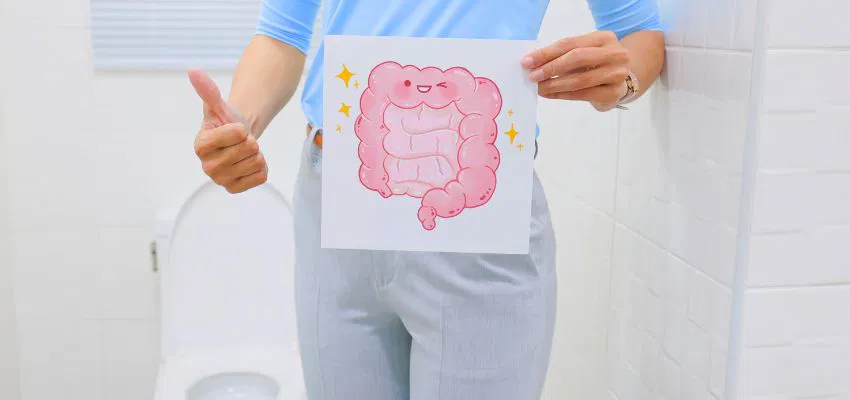
Reclaim Your Gut Health After Antibiotics
Constipation after antibiotics is a common, though temporary, side effect. Antibiotics disrupt your gut’s balance, reducing beneficial bacteria important for digestion. Thankfully, this issue is manageable.
Supporting gut health after antibiotics is important. Bionaze is an advanced probiotic supplement with patented strains. It’s formulated to help restore balance, promote immunity, and support ear, nose, and throat health. For more information, visit Bionaze.com.
Benefit From The Latest Advancements In Probiotic Science With Bionaze
Bionaze is a proprietary blend of probiotics proven to promote ear, nose, and throat health, improve digestion, and support your immune system. The active ingredients BLIS K12, and BL-04 are considered among the best probiotics according to science.
Get 25% Off Your First Order when you use BIO25 at checkout!

This Content Has Been Reviewed For Factual Accuracy
This content has undergone thorough fact-checking by our team of internal experts. Learn more about the meticulous editorial standard for our website here.
ADVERTISEMENT

About The Author
Hi, I’m Corinne Grace, a proud nursing graduate from Riverside College with a flair for writing. I specialize in health and wellness topics, using my educational background to weave informative and attention-grabbing articles that appeal to a wide variety of readers.

